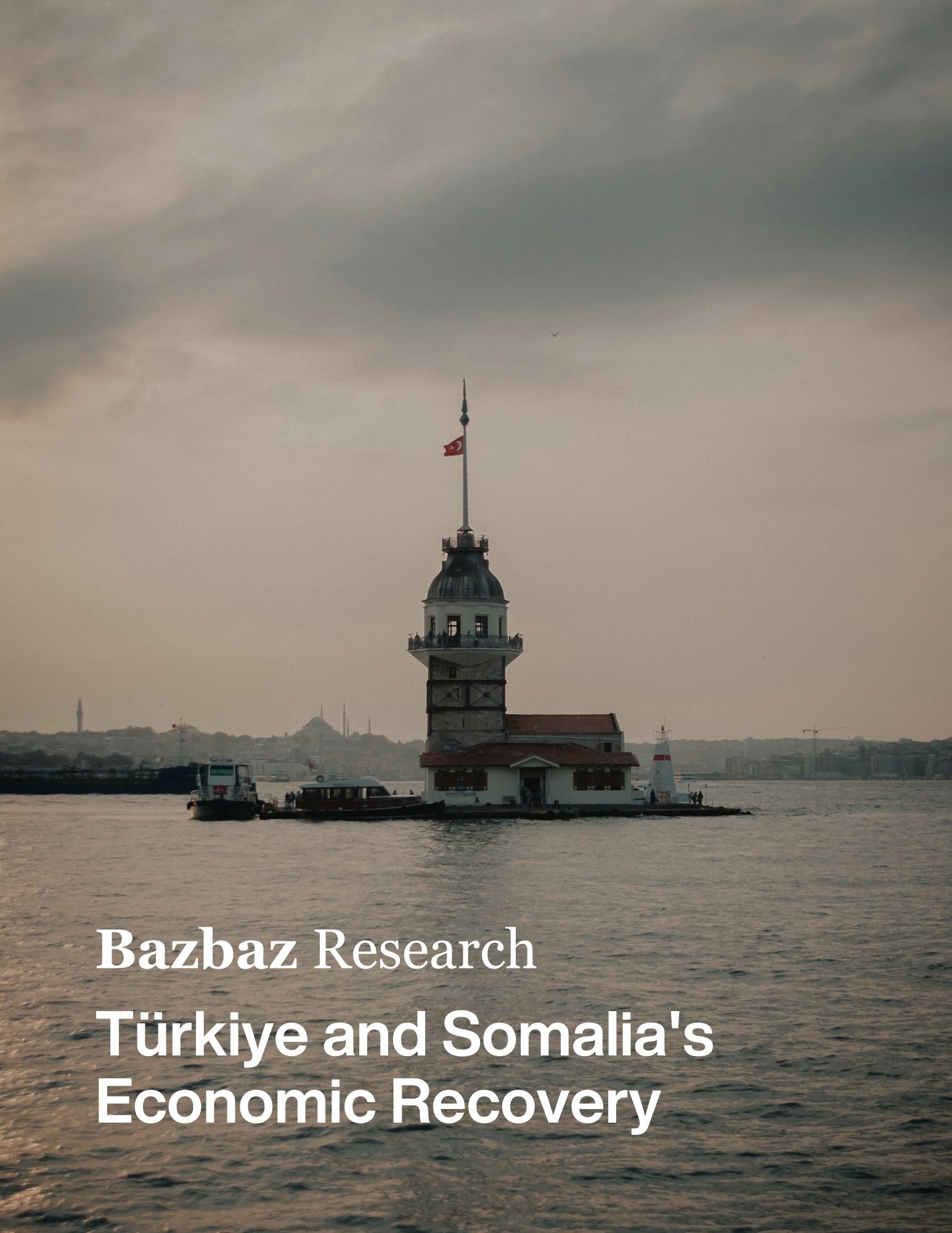Türkiye and Somalia's Economic Recovery
Türkiye and Somalia's Economic Recovery
In a country historically neglected by the global community, Türkiye has stood out for its involvement in Somalia to revitalize its economy. With strategic investments and partnerships, the implications for Somalia are significant.
Context
The distance between the two countries is 3,600 kilometers, so why is Türkiye investing in Somalia? The interest began in 2011 with the visit of then-prime minister Recep Tayyip Erdoğan’s visit to the country to examine the humanitarian situation. This marked the start of a mission to enhance ties, improve the country’s political stability, and address challenges such as poverty.
In undertaking the various initiatives, some goals of Türkiye include:
Enhancing bilateral relations in East Africa.
Expanding Islamic cooperation.
Diversifying economic investments.
Building military capacity abroad.
Turkish-Somali Relations
Ties between the two countries run deep and continue to grow. Since 2011, Türkiye has provided over $1 billion in aid to Somalia since 2011 for development projects in health, education, infrastructure, and municipal services, according to the Turkish government. The aid provided by Türkiye underscores its commitment to Somalia's development and underscores the depth of the relationship.
In addition, Türkiye hosts its largest embassy in Mogadishu, the capital of Somalia. In fact, Somalia was one of the first East African nations to establish diplomatic relations with Türkiye, signaling an early willingness to cooperate between the two countries.
Chart 1 | Türkiye Exports to Somalia
Economic Development
Somalia has struggled to recover since its 1991 Civil War, with much of its infrastructure shuttered and damaged. To alleviate this, Türkiye has managed to successfully reopen the country’s Mogadishu port and Aden Adde International Airport in 2014. Not only that, but Turkish companies currently operate both facilities. Turkish ports operator Albayrak signed a 14-year contract with the Somali government in 2020 to operate and renovate the port, and airport operator Favori LLC has been operating the airport since 2013.
Tourism, a key component of a diversified global economy, has been boosted by the 2012 inauguration of regular flights to Mogadishu by Turkish Airlines, the flag carrier of Türkiye. At the time, this was the first major international carrier to run regular service to Somalia in over 20 years.
In April 2024, Türkiye announced its intention to drill for oil off the Somali coast by 2025, after signing a natural resource cooperation deal.
Military Development
To accomplish its goal of building military capacity abroad, Türkiye has constructed Camp TURKSOM, its largest foreign military base in Somalia, with a budget of $50 million. It has deployed 200 of its military officers to train 1,500 troops at once, while also providing military equipment and weaponry for the 400-hectare base. More recently, in February 2024, Türkiye and Somalia signed a 10-year defense agreement, which involves maritime protection and will support Somalia in developing capacity and protecting its territorial waters against unauthorized activities.
Implications for Türkiye
With the significant investments and expansion into Somalia made, Türkiye has secured a strong foothold in East Africa. The military base and training of soldiers has shined a light on the country as an important geopolitical partner and key player in defense and security, aiming to restore a sense of normality in Somalia.
In addition, Türkiye’s defense agreement with Somalia can benefit Türkiye’s defense sector, which is currently estimated to be worth $15.3 billion in 2024, with a CAGR of 1.15% up until 2029. It also has the potential to create a steady supply of customers in Africa who would procure their military assets and training capabilities, growing the Turkish economy. This is due to their more affordable and accessible technologies compared to their global counterparts.
Chart 2 | Turkish Defense Industry Turnover
Türkiye’s selection of Somalia as a key partner is a calculated choice, as Somalia possesses the longest coastline in Africa at 3,333 kilometers, which gives it a significant Exclusive Economic Zone (EEZ) of 200 nautical miles beyond its territorial sea. This has the potential to provide immense fishing and hydrocarbon riches.
The defense agreement stipulates that Türkiye is entitled to 30% of revenues from the EEZ. With Somalia predicted to have at least 30 billion barrels of oil and gas reserves, Türkiye is well-positioned to benefit economically.
Chart 3 | Somalia’s Coastline Oil Discoveries
Conclusion
Türkiye’s investments in Somalia have multifaceted implications. Economically, they promise growth, job creation, and improved access to essential services. Strategically, closer ties offer diplomatic and security benefits, while cultural exchanges enrich both nations.
Overall, Türkiye’s involvement holds potential for Somalia's sustainable development and stability, while positioning the former as a reliable global partner committed to fostering development and stability in regions in need. This enhances Türkiye’s reputation as a responsible actor on the global stage, strengthening its diplomatic standing and influence worldwide.




